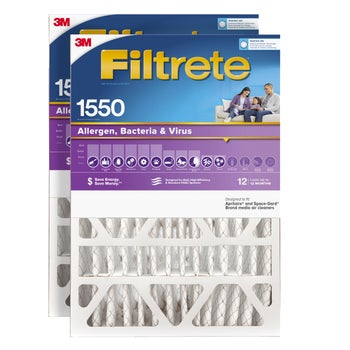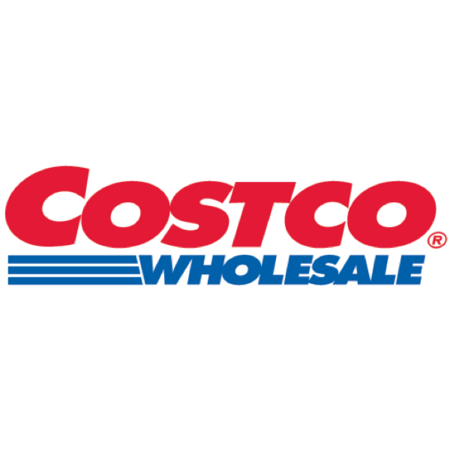expired00dahc posted Jan 15, 2025 10:52 PM
Item 1 of 2
Item 1 of 2
expired00dahc posted Jan 15, 2025 10:52 PM
Costco Members: 2-Pack 3M Ultra Allergen Reduction 4" Deep Pleat HVAC Filters
+ Free Shipping$30
$40
25% offCostco Wholesale
Visit RetailerGood Deal
Bad Deal
Save
Share





Leave a Comment
Top Comments
That is an uninformed rule of thumb that in many times couldn't be further from the truth.
The biggest factor in static pressure or pressure drop for a filter is the surface area of the filter. Generally, more pleats = higher surface area, but filter depth and design is also part of the equation.
Don't believe me? Here is a link to a very in depth study proving this. Among 3M filter lineup, the filtrete 1900 MERV 13 performs the best, while the filtrete 600 MERV 7 has the highest pressure (tied with filtrete 2400 MERV 14).
They also tested a variety of filter manufactures across MERV ratings in 1" and 2" depth and confirmed there generally is no correlation between MERV ratings and pressure. The MERV 13 Rated filters actually provided the best performance, and generally the filter depth or number of pleats has been found to be highly correlated to HVAC pressure (thicker / more pleats = better).
With that said, there are also many exceptions to that rule and deviations not only between manufacturers but also between product offerings if the same manufacturer. However, what they did find is that the filters performed within the pressure drop ratings provided by the manufacturer for that filter.
Long story short, the most important thing is to find the rating of your HVAC system for Pressure drop vs CFM / airflow and ensure you are getting a filter that meets the design loads. Feel free to put in a HEPA filter as long as it meets your requirements.
https://efiling.energy.
46 Comments
Sign up for a Slickdeals account to remove this ad.
Our community has rated this post as helpful. If you agree, why not thank JollyBorder2428
That is an uninformed rule of thumb that in many times couldn't be further from the truth.
The biggest factor in static pressure or pressure drop for a filter is the surface area of the filter. Generally, more pleats = higher surface area, but filter depth and design is also part of the equation.
Don't believe me? Here is a link to a very in depth study proving this. Among 3M filter lineup, the filtrete 1900 MERV 13 performs the best, while the filtrete 600 MERV 7 has the highest pressure (tied with filtrete 2400 MERV 14).
They also tested a variety of filter manufactures across MERV ratings in 1" and 2" depth and confirmed there generally is no correlation between MERV ratings and pressure. The MERV 13 Rated filters actually provided the best performance, and generally the filter depth or number of pleats has been found to be highly correlated to HVAC pressure (thicker / more pleats = better).
With that said, there are also many exceptions to that rule and deviations not only between manufacturers but also between product offerings if the same manufacturer. However, what they did find is that the filters performed within the pressure drop ratings provided by the manufacturer for that filter.
Long story short, the most important thing is to find the rating of your HVAC system for Pressure drop vs CFM / airflow and ensure you are getting a filter that meets the design loads. Feel free to put in a HEPA filter as long as it meets your requirements.
https://efiling.energy.
That is an uninformed rule of thumb that in many times couldn't be further from the truth.
The biggest factor in static pressure or pressure drop for a filter is the surface area of the filter. Generally, more pleats = higher surface area, but filter depth and design is also part of the equation.
Don't believe me? Here is a link to a very in depth study proving this. Among 3M filter lineup, the filtrete 1900 MERV 13 performs the best, while the filtrete 600 MERV 7 has the highest pressure (tied with filtrete 2400 MERV 14).
They also tested a variety of filter manufactures across MERV ratings in 1" and 2" depth and confirmed there generally is no correlation between MERV ratings and pressure. The MERV 13 Rated filters actually provided the best performance, and generally the filter depth or number of pleats has been found to be highly correlated to HVAC pressure (thicker / more pleats = better).
With that said, there are also many exceptions to that rule and deviations not only between manufacturers but also between product offerings if the same manufacturer. However, what they did find is that the filters performed within the pressure drop ratings provided by the manufacturer for that filter.
Long story short, the most important thing is to find the rating of your HVAC system for Pressure drop vs CFM / airflow and ensure you are getting a filter that meets the design loads. Feel free to put in a HEPA filter as long as it meets your requirements.
https://efiling.energy.
However, if you were to take a 4" MERV 13 filter and compare it to a 1" MERV 7 filter, you may find that the 4" filter results in less of a static drop. That's because thicker filters can use deeper pleats, resulting in better airflow through the filter.
Does this deal work as good alternative
Sign up for a Slickdeals account to remove this ad.
Point is, filters help to remove airbornes, but should never be relied upon to do so.
Does that spray fiberglass everywhere?
Sign up for a Slickdeals account to remove this ad.
Leave a Comment